Impulsing a change in Veracruz, Mexico.
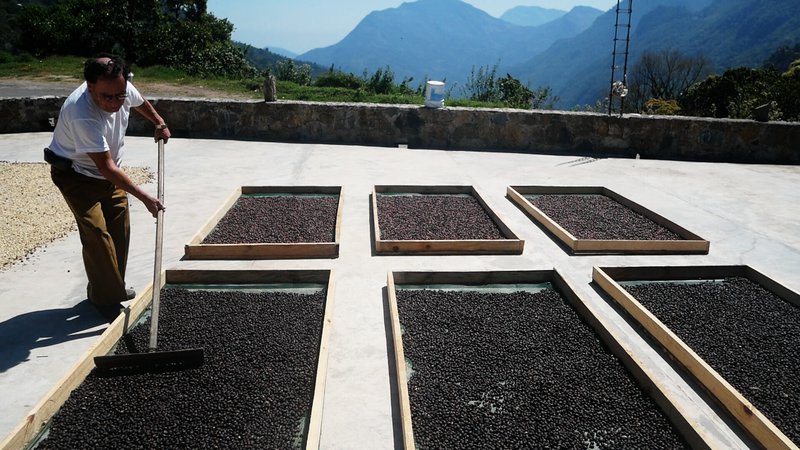
The story of a trio impulsing a change into the coffee business in Veracruz.
Samuel Altamarino Juáres
Samuel reached the first place with a score of 91,59 in for Cup of Excellence* 2014 Mexico. This reward has totally changed his life and his vision of coffee, allowing him to access to international clients he could hardly have reached otherwise.
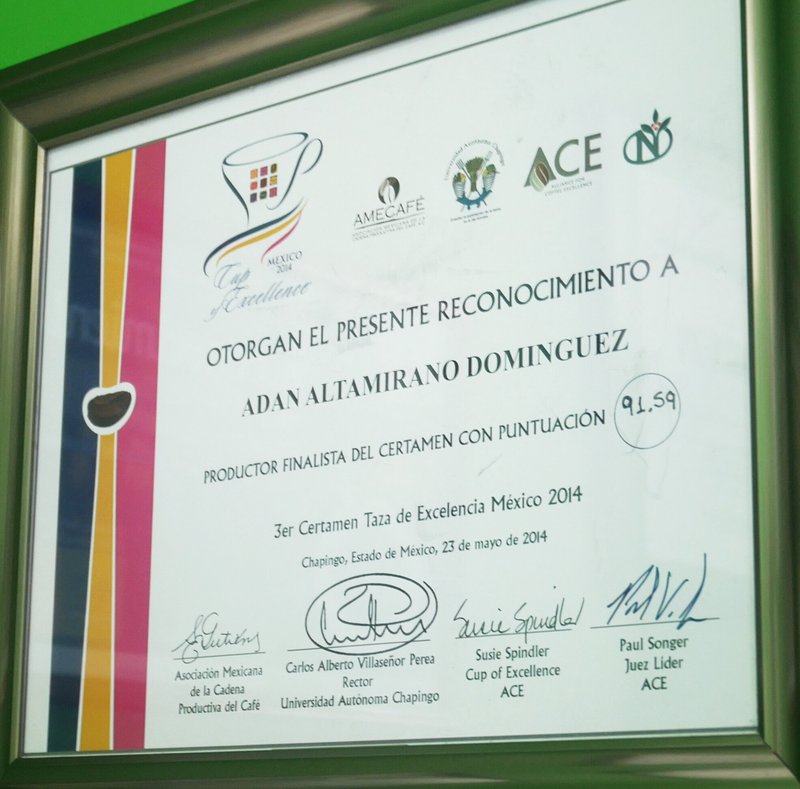
This year again, he reached the 3rd place competing with a coffee of the finca Dinastia Altamarino with a score of 90,32. A proof that although specialty coffee requires constant efforts, it was worth taking the risk.
Samuel has a small farm (finca el Estrebo) in Zongolica, Veracruz, where he cultivates different varieties of coffee facing the threat of extinction due to their susceptibility to leaf rust among which typica, bourbon and caturra.
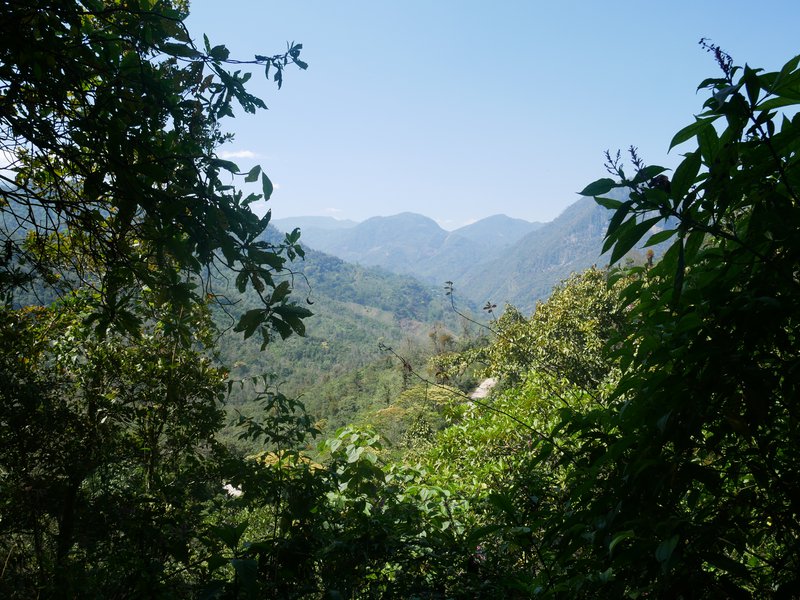
He's processing his coffee - fully washed, honey and sundried - at home which is really something unusual in Mexico. Most of the farmers indeed just sell their cherries to intermediaries or cooperatives. Deciding to process his own coffee is already a step forward.
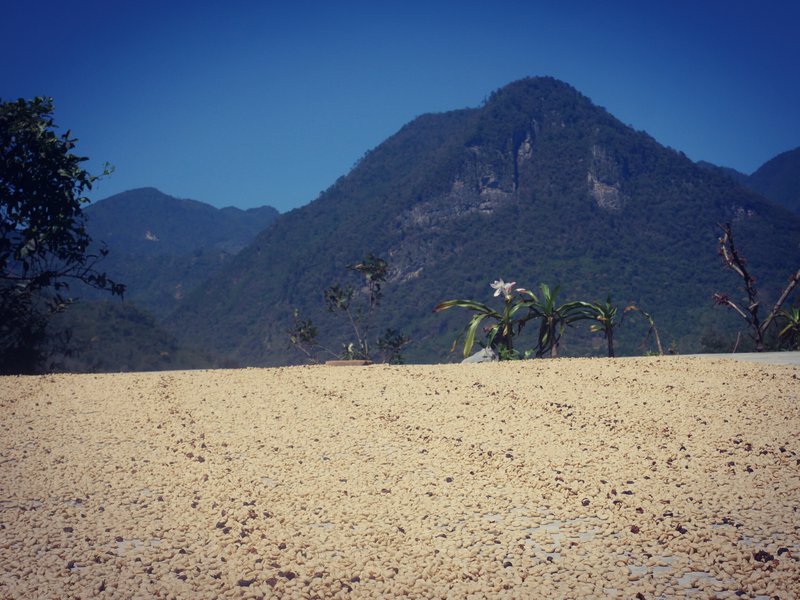
Samuel doesn't make big volumes but he takes care of every bean, controls the fermentation and drying process (natural under sun or mechanical with guardiolas when he lacks of space to dry) to give the best in cup.
We had the chance to meet him through Victoria Marini and Abraham Vazquez. The three of them are working on a project with Caravela Coffee.
They all entered through different doors into the world of specialty coffee but with the same motivation and conviction: something different has to be done.
Victoria Marini - Cafés Tarento
Victoria is working on the processing side, in the coffee mill coming from the family of her husband Carlos Rendon Sampieri. Carlos is a professional cupper. He evaluates the quality of the coffee for the farmers and for companies. They both come from Italian families that have emigrated to Mexico at the end of the ninetieth century.
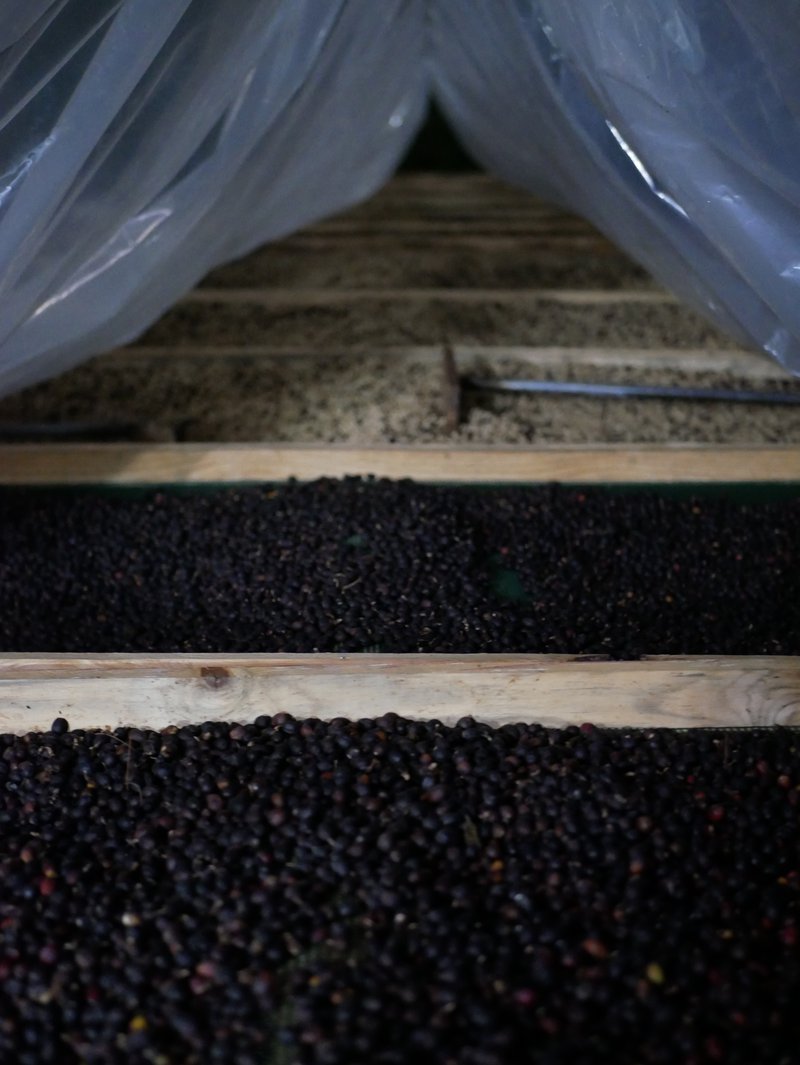
Abraham Vásquez
Abraham is a roaster. He made his first steps into the world of coffee seven years ago. He started at the other end of the chain, focusing first on the cup. He quickly understood the connection between a good cup and the roasting profile. He's an autodidact. He has learnt almost everything through investigation and experimentations. Roasting is what he likes the most. He even made his own machine, taking what he wanted from different models.
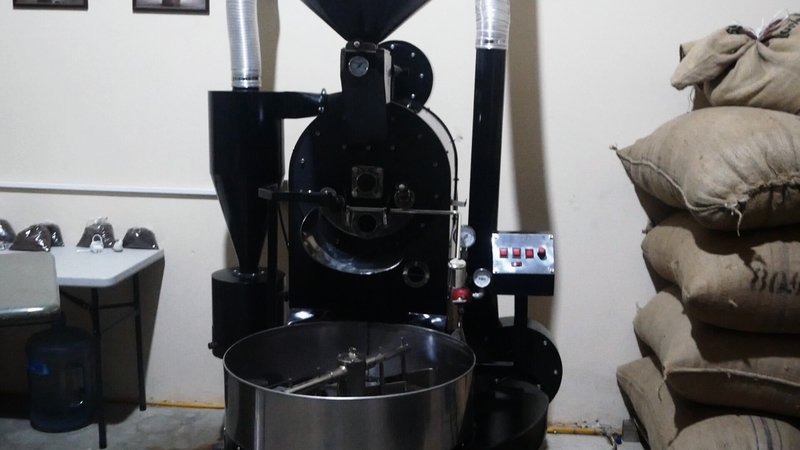
Together with Victoria, they make a team. They support the producers to improve the quality of harvest and post-harvest process. Like Samuel, they try to impulse a change at their own level.
The mill is not of the biggest but they have it well organised and they control all the parameters of fermentation and drying. This year they had to manage a higher volume as they received more coffees from small farmers refusing to sell to intermediaries or multinationals due to the low prices. Victoria tries to save and valorise the work of small producers that still haven't get rid of the "criollo" - typica, bourbon or caturra varieties. She tries to convince them to be resilient because these coffees can really make the difference in the cup if they are given care.
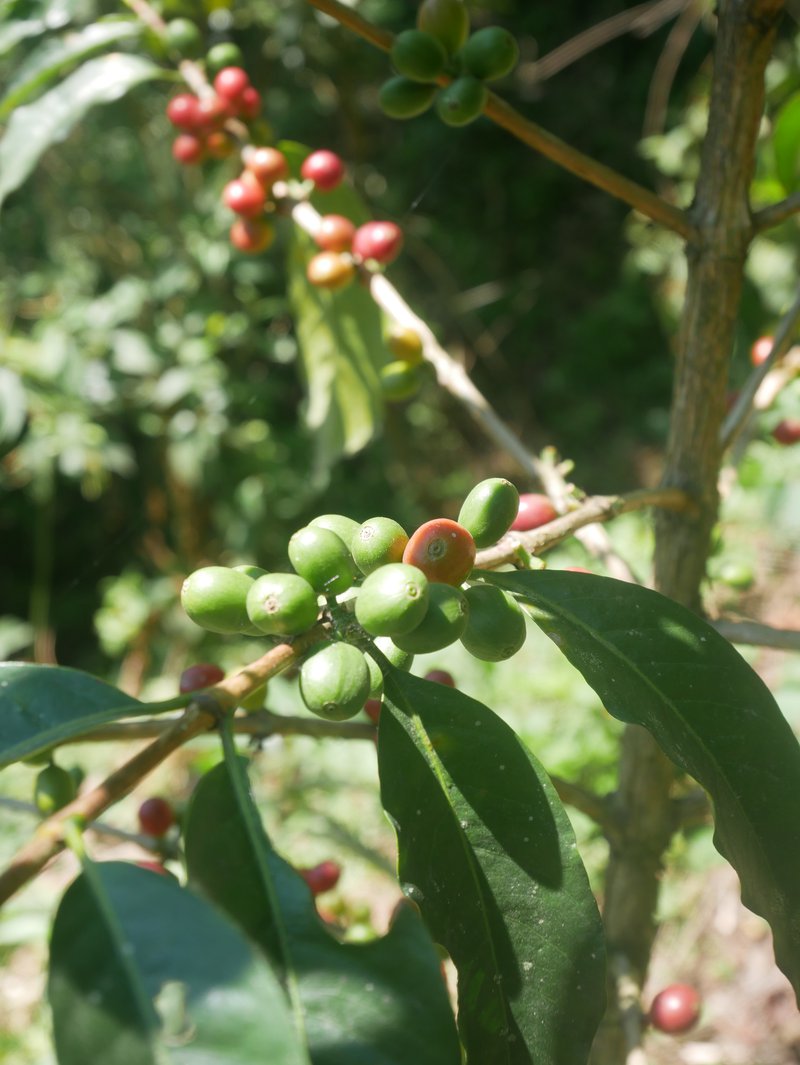
Together with Abraham, they are experimenting new processing methods, far from the traditional fully washed, polished and fast dried coffee. They are trying honey and natural with different types of drying.
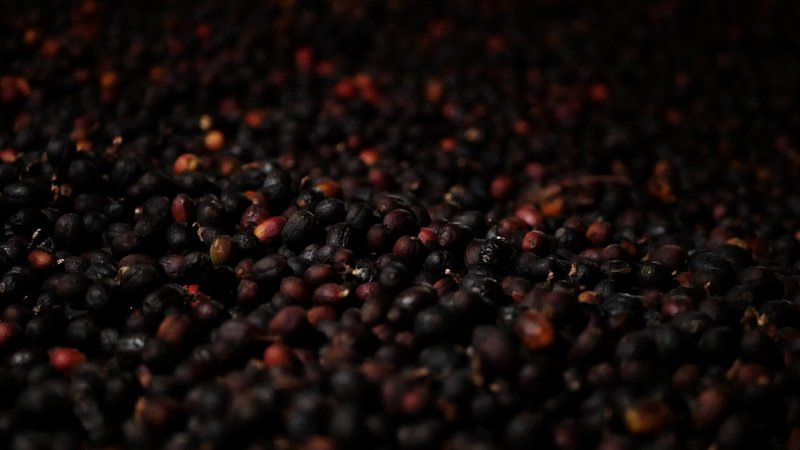
Once it's ready, Abraham roasts a sample that they cup together. He also gives a sample to an impartial professional cupper. If they are satisfied with the score and qualities, if they feel the potential for a market, they repeat the same protocols to reach a constant quality. They also guaranty a full traceability for each lot they are receiving and processing.
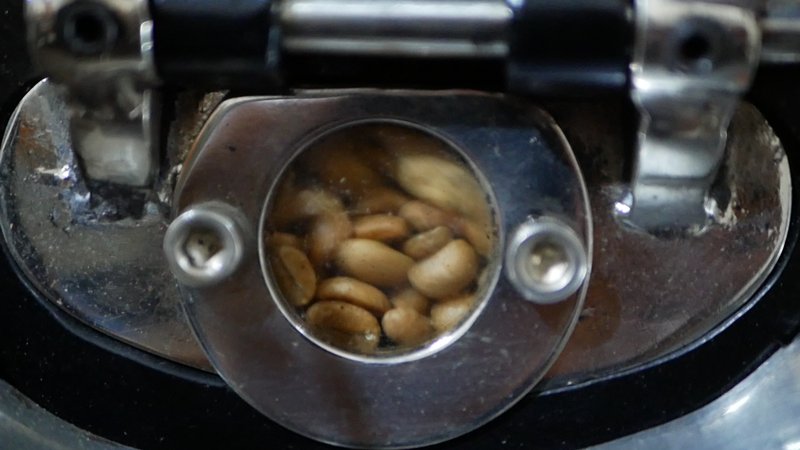
The producers have seen the change already. They are better paid because an additional value has been given to their coffees.
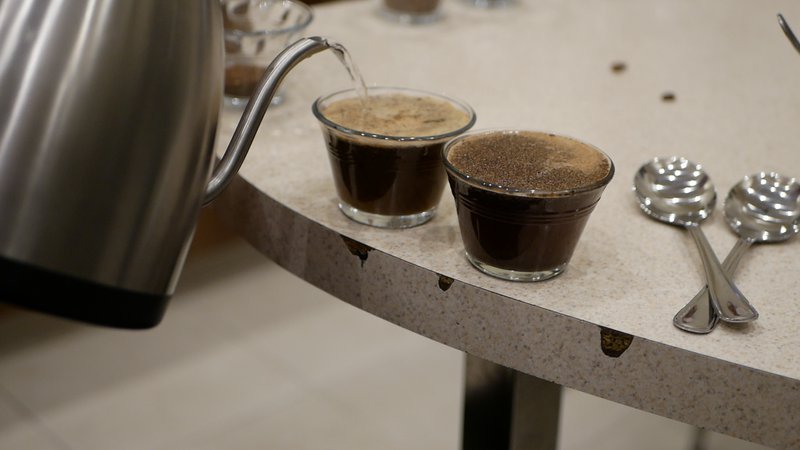
Victoria is now planning to open a training center to empower the farmers through a better education to coffee for the current farmers and for the future generations...
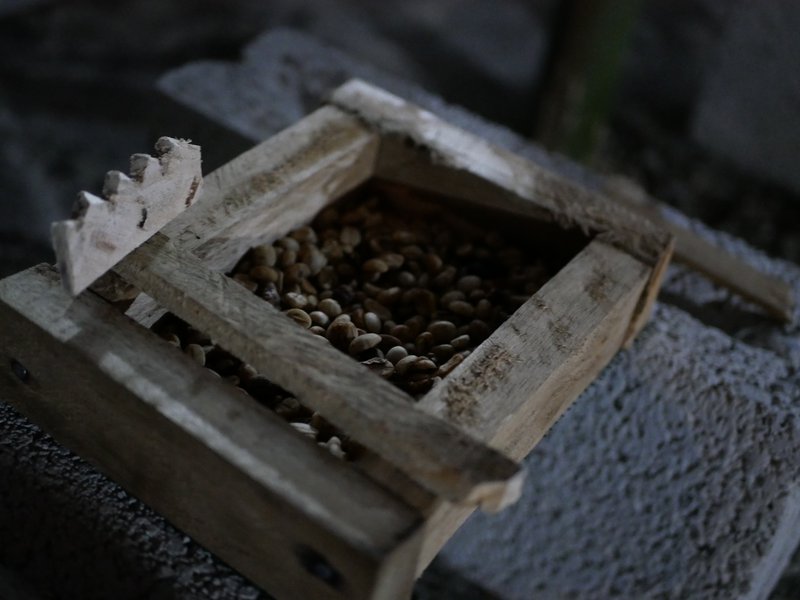
*Cup of Excellence Program
It was born in 1999 and was designed to help farmers receive more money for their high-quality coffee.
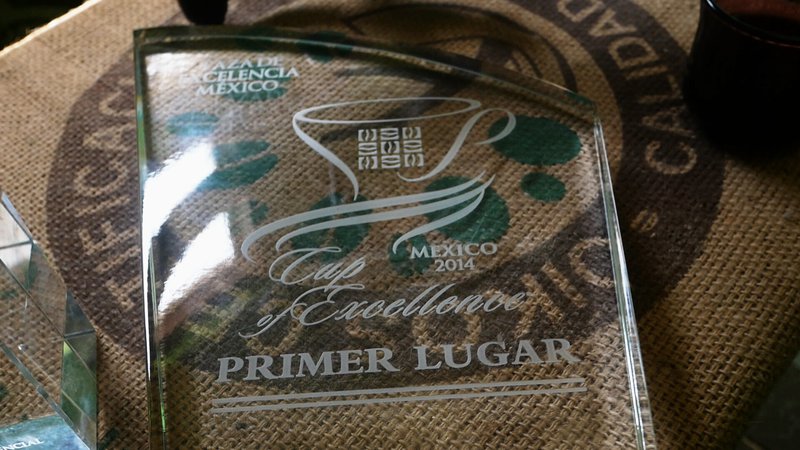
This competition takes place in 11 coffee producing countries allowing them to discover and reward their top coffee farmers and help develop long term marketplace relationships so critical for financial sustainability.
The winning coffees are sold in internet auctions. The prices rise with the bidding of all participants registered and is thus likely to be many times higher than any other avenue the farmer has access too.
The aim of the competition is to find true coffee excellence and the best coffee from that country for that harvest.

 Mexico
Mexico Colombia
Colombia Ethiopia
Ethiopia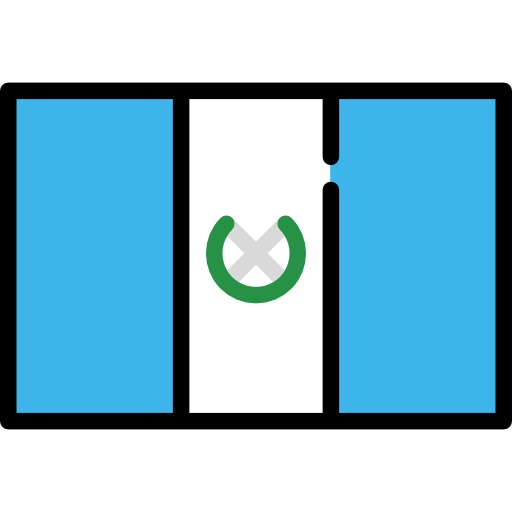 Guatemala
Guatemala Indonesia
Indonesia Kenya
Kenya Philippines
Philippines Tanzania
Tanzania Uganda
Uganda